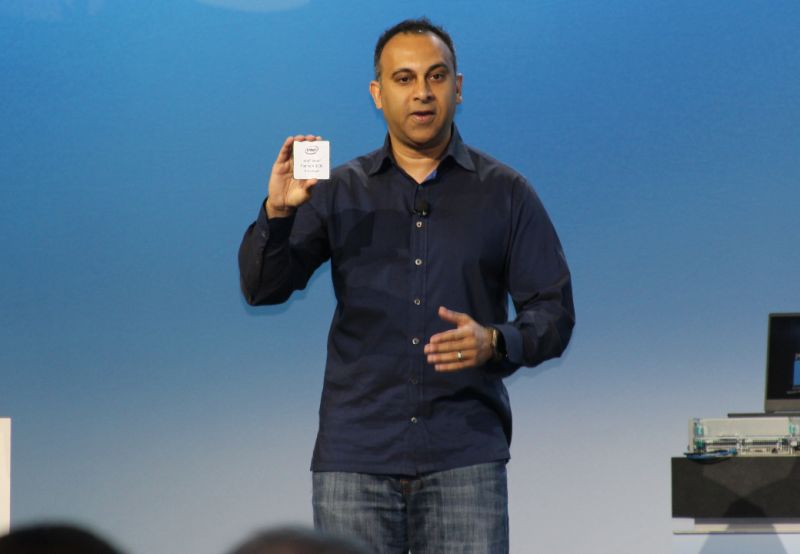For years, Intel and AMD have waged war against each other, with both sides having produced CPUs with a ridiculous amount of processor cores and threads. Earlier today, Intel announced its new Cascade Lake-based Xeon Platinum 9200 series CPUs.
The new CPU series was announced at the brand’s Data-Centric Day at San Francisco, and serves as the successor to Intel’s earlier Skylake-X and Skylake-SP CPU microarchitecture. These CPUs are designed for high-end server usage as well as deep learning applications.
In total, the new Xeon Platinum 9200 series comprises four SKUs. These SKUs are:
- Xeon Platinum 9221 (32 / 64, Base: 2.1GHz, Boost: 3.7GHz, L3 Cache: 71.5MB)
- Xeon Platinum 9222 (32 / 64, Base: 2.3GHz, Boost: 3.7GHz, L3 Cache: 71.5MB)
- Xeon Platinum 9242 (48 / 96, Base: 2.3GHz, Boost: 3.8GHz, L3 Cache: 71.5MB)
- Xeon Platinum 9282 (56 / 112, Base: 2.6GHz, Boost: 3.8GHz, L3 Cache: 77MB)
 Both the Platinum 9221 and 9222 feature a 32-cores, 64-threads layout, and both have a boost clockspeed of 3.7GHz. The Platinum 9242 is next up the ladder, featuring a 48-cores, 96-threads die layout, while its default boost clockspeed caps out at 3.8GHz. Sitting pretty at the top is the Platinum 9282 CPU, which comes with a 56-cores, 112-threads layout, and a boost clockspeed of 3.8GHz. As the top-tier CPU, it also comes with L3 Cache of 77MB.
Both the Platinum 9221 and 9222 feature a 32-cores, 64-threads layout, and both have a boost clockspeed of 3.7GHz. The Platinum 9242 is next up the ladder, featuring a 48-cores, 96-threads die layout, while its default boost clockspeed caps out at 3.8GHz. Sitting pretty at the top is the Platinum 9282 CPU, which comes with a 56-cores, 112-threads layout, and a boost clockspeed of 3.8GHz. As the top-tier CPU, it also comes with L3 Cache of 77MB.
All CPUs will come with support for Intel’s Optane storage solutions, and each CPU possess two internal die that comprises modified 28-cores Extreme Core Count (XCC) die capable of wielding a six-channel memory controller. In practical terms, that means that the CPUs can support a total of 3TB DDR4 memory on a two-socket server. For the 56-cores, 112-threads Platinum 9282 CPU, that’s 407GB/s of memory throughput.

Lastly, the new Xeon Platinum 9200 series CPUs have up to 40 PCIe 3.0 lanes per chip, which means that a dual-socket server motherboard will have up to 80 lanes at its disposal.
Intel’s Cascade Lake Xeon Platinum 9200 CPUs are available starting today, but the company fell short of providing the price for each processor. Given the nature of Xeon CPUs, however, it’s likely to cost far more than even a consumer-grade HEDT CPU.
(Source: Tom’s Hardware, Techspot)
Follow us on Instagram, Facebook, Twitter or Telegram for more updates and breaking news.


